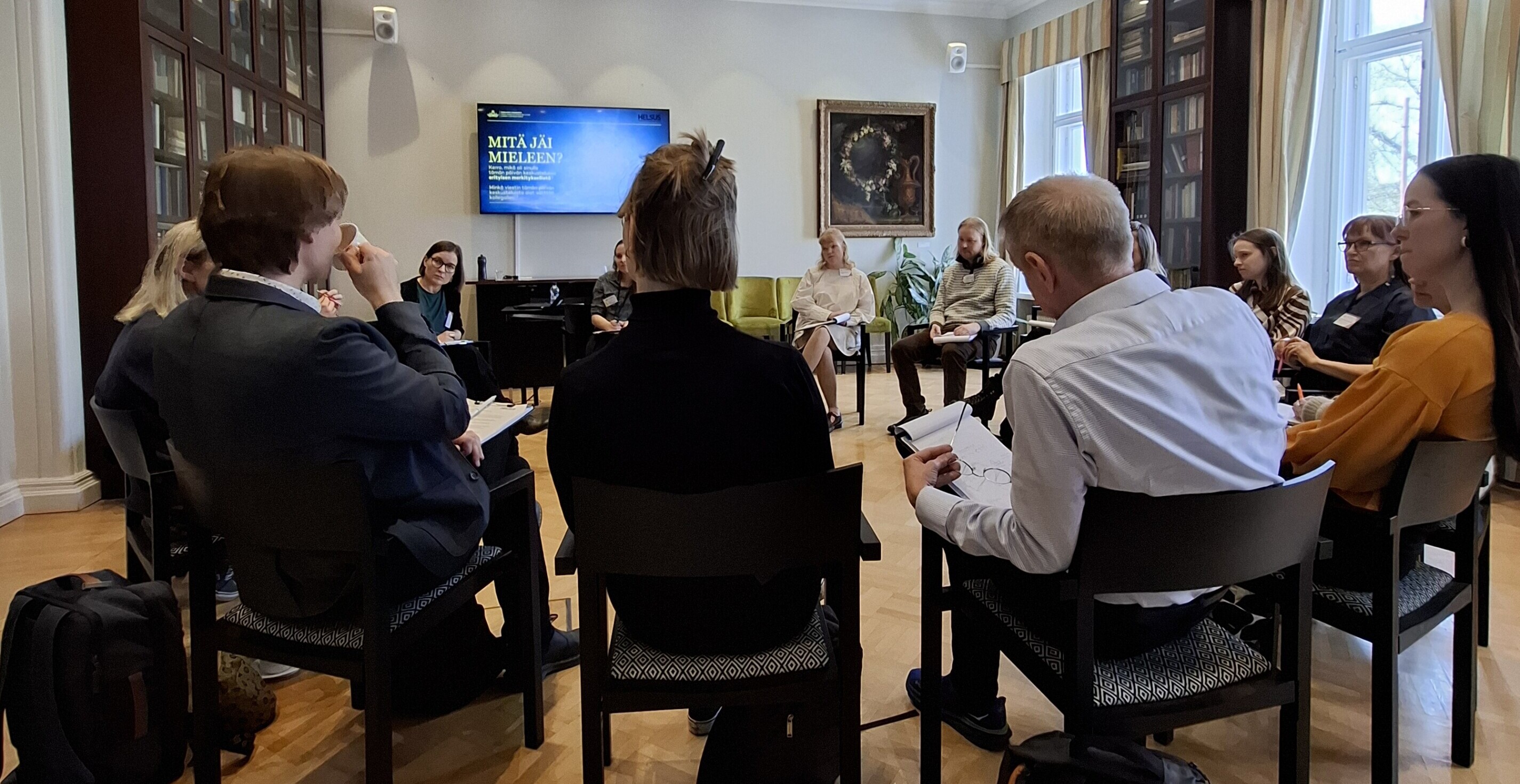Science Sparring is policy red teaming in which researchers comment on draft policy documents to systematically and proactively identify risks related to policymaking. According to participants, Science Sparrings have led to several long-lasting impacts.
Science Sparrings have resulted in far-reaching visions, ideas, and knowledge that policymakers in ministries have utilised for years after the actual Sparring process. Participating researchers, in turn, report having expanded professional networks and strengthened expertise. Building on these positive experiences, new connections between policymakers and researchers have formed, creating continuity in science-policy collaborations.
Science Sparring is a goal-oriented knowledge brokering model developed at the Finnish Academy of Science and Letters in close collaboration with ministries in Finland. The model is inspired by red teaming, and in it, researchers provide a structured critique of draft policy documents.
These findings are based on interviews with participants across various Science Sparrings conducted between 2023 and 2025.
Ecological connectivity Science Sparring and knowledge synthesis: a combination that remains relevant for the Ministry of the Environment
In 2023–2024, the Ministry of the Environment used Science Sparring and knowledge synthesis to deepen understanding of how ecological connectivity, meaning green corridors that enable the movement and dispersal of animals and plants, can be defined and incorporated into land-use planning and built-environment design.
The knowledge synthesis based on the Science Sparring workshop has benefited policymakers in the years since. Joona Lehtomäki, Senior Specialist at the Ministry of the Environment, says he returns to it repeatedly, finding that it concisely captures the fundamentals of ecological connectivity and its many dimensions.
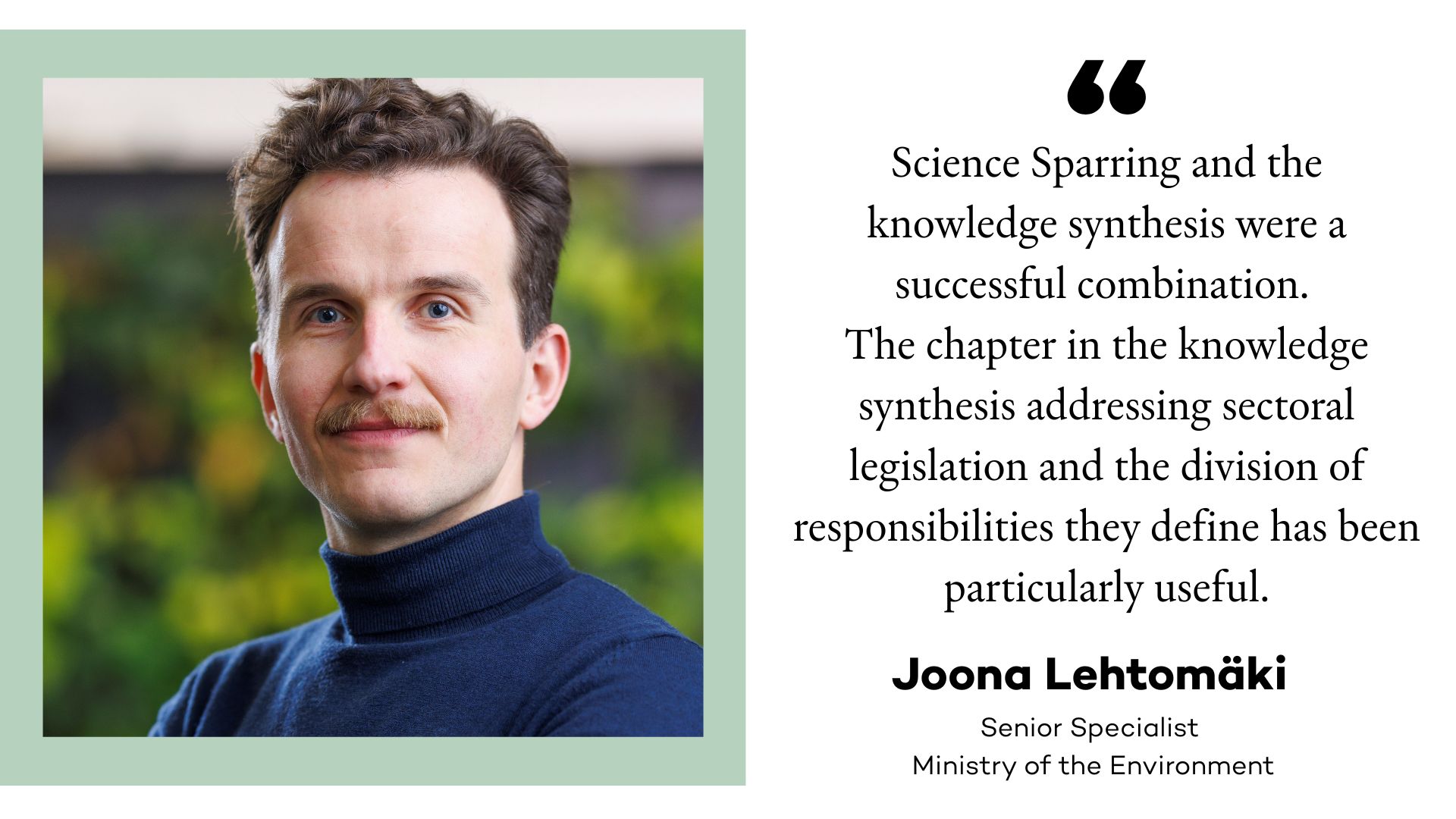
Science Sparring helped develop the R&D funding monitoring plan
To support the R&D funding evaluation and monitoring plan prepared by the Prime Minister’s Office Research and Innovation Council (TIN), a two-part Science Sparring process was organised in 2024. The first workshop aimed to identify complementary and alternative perspectives for monitoring and evaluating public R&D funding. The second explored indicators for monitoring.
According to Antti Pelkonen, Chief Specialist at the Prime Minister’s Office, the knowledge shared in the workshops was concrete and directly supported the preparation of the plan.
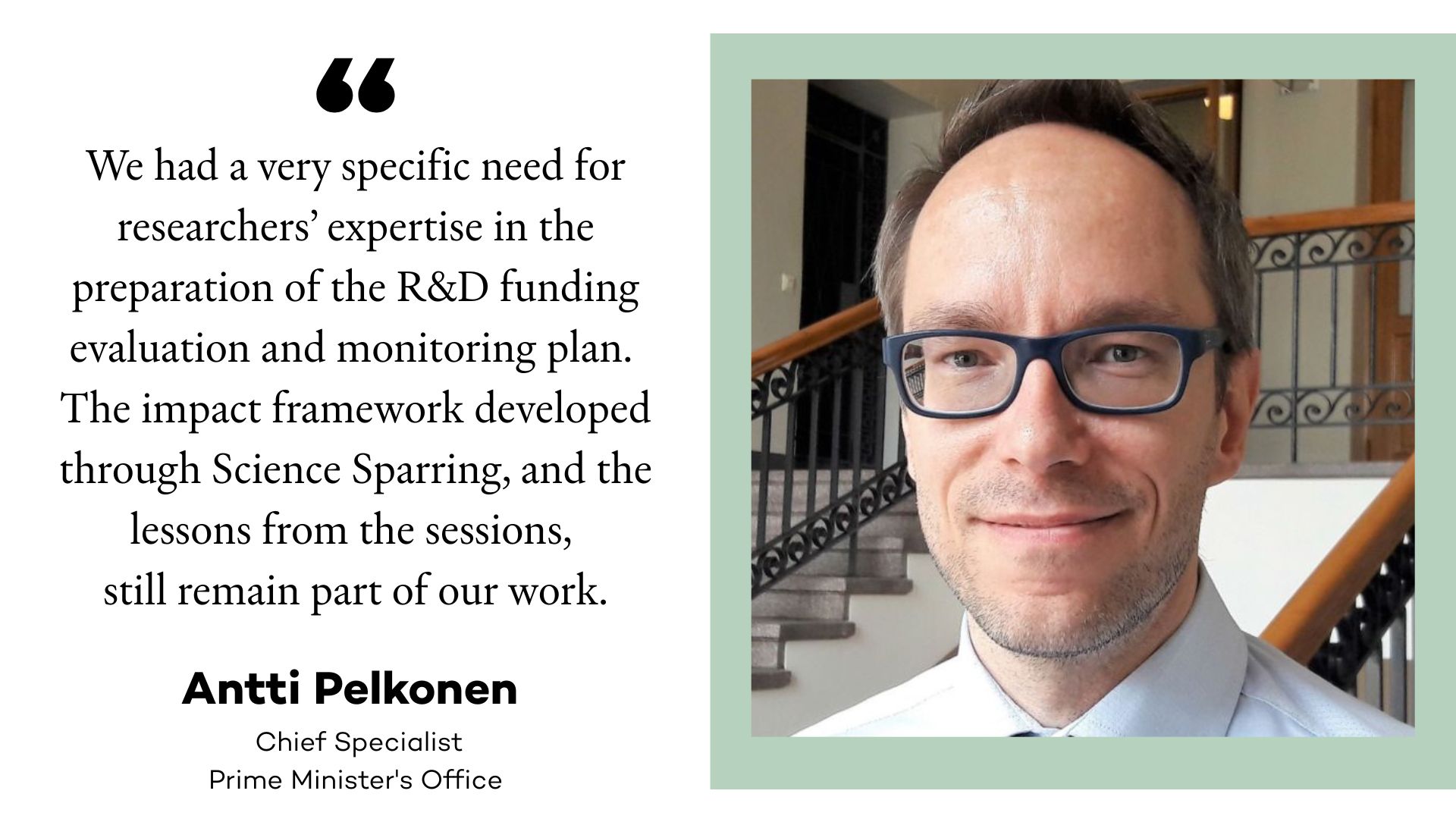
Discussions in the Science Sparring also directly influenced the plan’s content: closer attention was paid to monitoring interactions and collaboration at the indicator level, while some originally planned indicators were set aside. The new researcher contacts formed during the process have continued to be drawn on beyond the sessions themselves.
Researchers’ professional networks expanded and expertise deepened
Researchers who have participated in Science Sparrings have reported growth in both their professional networks and their own competencies. Those who participated in the Sparring on ecological connectivity described developing a more multidisciplinary understanding of their subject through the collaboration. The new relationships formed with fellow researchers have since proven useful. For instance, participants have consulted these new contacts on questions arising in their own work.
Positive experiences create continuity in science-policy collaboration
Several participants interviewed felt that Science Sparring has created a new, replicable model for science-policy interaction. Thus, its benefits extend beyond the topics of individual Science Sparrings and the contributions of individual participants. Ministries now know that the Finnish Academy of Science and Letters offers a goal-oriented yet flexible knowledge brokering model that strengthens evidence-informed policymaking. Recognition has spread beyond central government, and Science Sparrings have also been implemented in other contexts, including in bigger cities, such as Turku and Espoo.
Contact:
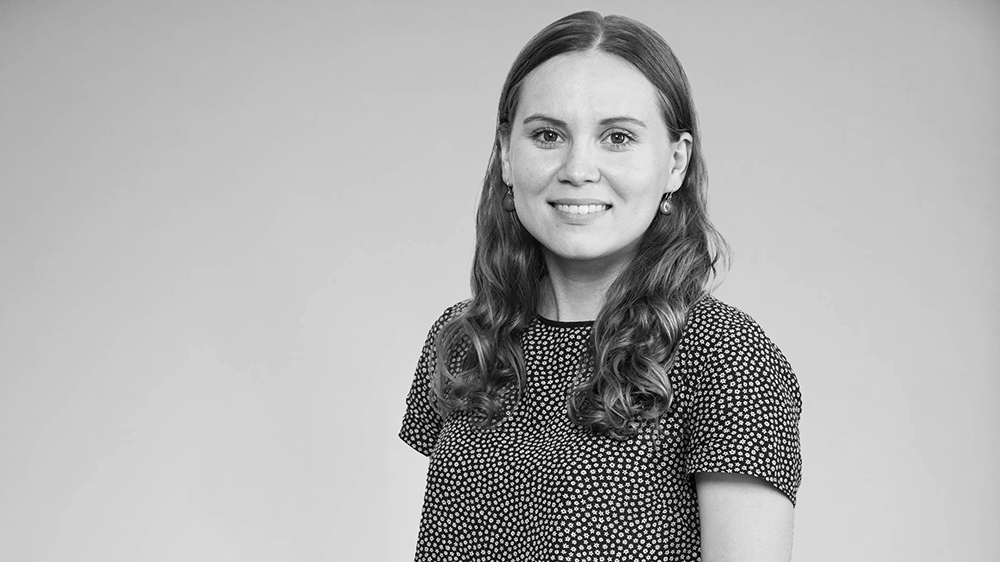
Linda Lammensalo
Knowledge broker
Phone: +358 50 308 7726
linda.lammensalo@acadsci.fi
Science for policy, especially science-policy dialogues
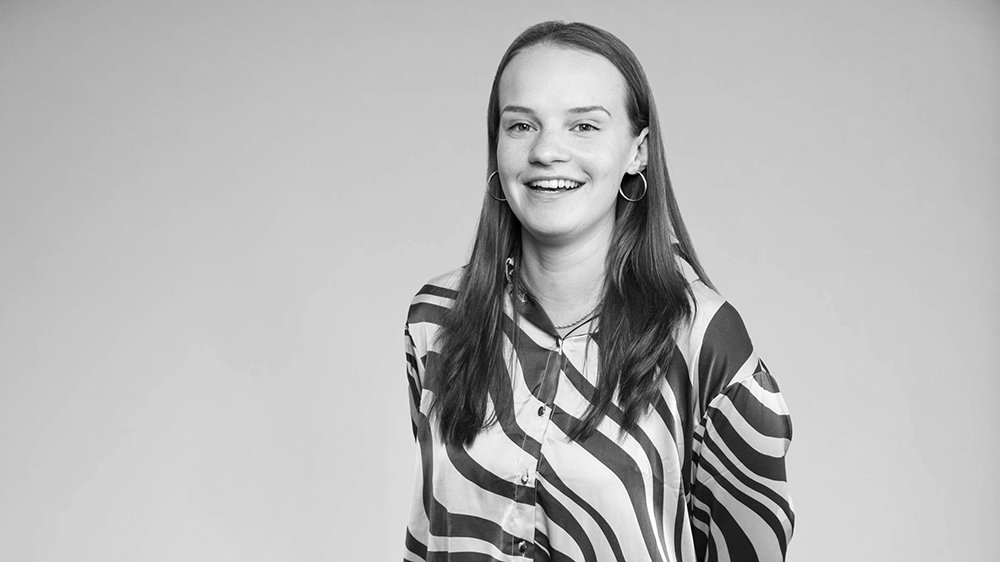
Laura Väliniemi
Knowledge broker
Phone: +358 40 091 0978
laura.valiniemi@acadsci.fi
Science for policy, especially science-policy dialogues

